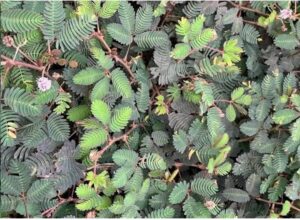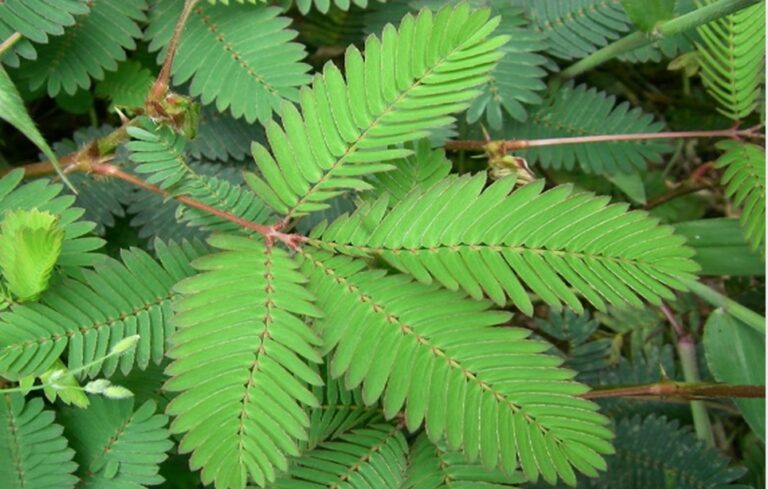Mimosa pudica, commonly known as the “sensitive plant” or “touch-me-not,” has been a subject of fascination for centuries. Beyond its unique characteristic of folding its leaves when touched, Mimosa pudica boasts a rich history of use in traditional medicine. This article delves into the medicinal properties and uses of Mimosa pudica, highlighting its potential benefits for various health conditions.
Medicinal Properties of Mimosa Pudica
1. Antimicrobial: Mimosa pudica exhibits strong antimicrobial properties, making it effective against bacterial and fungal infections.
2. Anti-inflammatory: The plant helps reduce inflammation, making it useful for treating wounds, joint pain, and skin conditions.
3. Antioxidant: Rich in antioxidants, Mimosa pudica protects the body from oxidative stress and free radical damage.
4. Astringent: The plant’s astringent properties help tighten tissues and reduce bleeding, making it effective for wound healing.
5. Antiparasitic: Mimosa pudica is used to expel intestinal parasites and worms, particularly in traditional Ayurvedic medicine.
6. Sedative: The plant has mild sedative properties, which can help calm the nervous system and improve sleep quality.
7. Antidiarrheal: Mimosa pudica can help alleviate diarrhea by strengthening the intestinal walls and promoting healthy digestion.
Medicinal Uses of Mimosa Pudica
1. Wound Healing: Mimosa pudica is used to treat wounds, cuts, and skin infections due to its antibacterial and anti-inflammatory properties.
2. Digestive Health: The plant is used to treat digestive disorders, such as diarrhea and irritable bowel syndrome (IBS), due to its antidiarrheal and anti-inflammatory properties.
3. Intestinal Parasites: Mimosa pudica seeds are used to expel intestinal parasites, including tapeworms and roundworms, due to their antiparasitic properties.
4. Inflammation and Pain: The plant is used to reduce inflammation and pain in conditions such as arthritis, joint pain, and inflammation.
5. Respiratory Health: Mimosa pudica is used to treat respiratory conditions, such as asthma, bronchitis, and cough, due to its anti-inflammatory and antimicrobial properties.
In conclusion, Mimosa pudica is a versatile plant with a rich history of use in traditional medicine. Its medicinal properties make it an effective treatment for various health conditions, including wound healing, digestive health, and inflammation. As research continues to uncover the potential benefits of Mimosa pudica, it is essential to consult with a healthcare professional before using the plant for medicinal purposes
